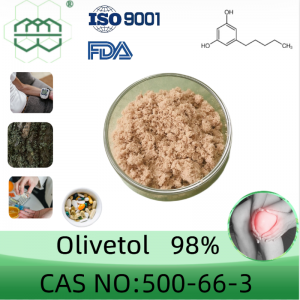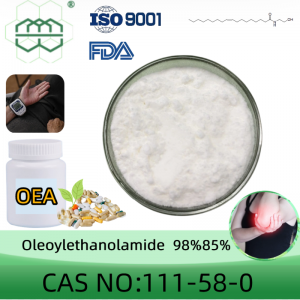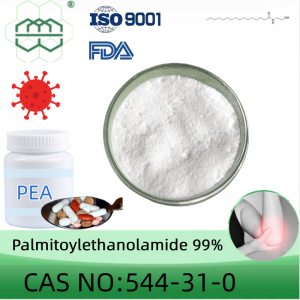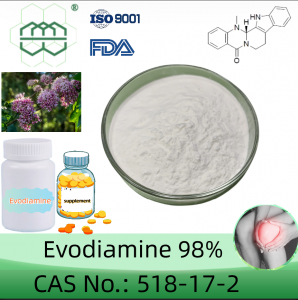Palmitoylethanolamide (PEA Granule) powder manufacturer CAS No.: 544-31-0 97% purity min. for supplement ingredients
Product Parameters
|
Product name |
PEA |
|
Other name |
N-(2-HYDROXYETHYL)HEXADECANAMIDE; N-HEXADECANOYLETHANOLAMINE; PEAPALMIDROL; PALMITYLETHANOLAMIDE; PALMITOYLETHANOLAMIDE |
|
CAS No. |
544-31-0 |
|
Molecular formula |
C18H37NO2 |
|
Molecular weight |
299.49 |
|
Purity |
97.0% |
|
Appearance |
White granulated Powder |
|
Packing |
1kg/bag ,25Kg/ drum |
|
Application |
Raw materials of health care products |
Product introduction
Palmitoylethanolamide is a lipid messenger molecule first discovered in the late 1950s. It belongs to a class of compounds called endocannabinoids, which are natural substances that interact with the body’s endocannabinoid system. Unlike other cannabinoids such as THC found in the cannabis plant, PEA is non-psychoactive and does not produce any mind-altering effects. The endocannabinoid system (ECS) is a complex network of receptors and endocannabinoids found throughout the body. It plays a critical role in regulating a variety of physiological processes, including pain perception, inflammation, and mood. PEA serves as an endogenous ligand for a specific receptor within the ECS called peroxisome proliferator-activated receptor-α (PPAR-α). By activating this receptor, PEA exerts its anti-inflammatory and analgesic effects. Studies show that Palmitoylethanolamide can help manage chronic pain, including neuropathic and inflammatory pain. It works by reducing the release of pro-inflammatory substances and regulating the activation of immune cells involved in the inflammatory response. Multiple clinical trials have demonstrated the efficacy of PEA in reducing pain intensity and improving quality of life in patients with a variety of chronic pain conditions.
Feature
(1) High purity: PEA can obtain high-purity products through refining production processes. High purity means better bioavailability and fewer adverse reactions.
(2) Safety: High safety, few adverse reactions.
(3) Stability: PEA has good stability and can maintain its activity and effect under different environments and storage conditions.
Applications
Used as a dietary supplement, Palmitoylethanolamide is a naturally occurring fatty acid amide that exerts anti-inflammatory, analgesic, and neuroprotective effects through modulation of the endocannabinoid system. Its potential benefits for managing chronic pain and other health conditions make it an interesting option for individuals seeking natural alternatives. In addition, PEA is also an organic synthesis intermediate and pharmaceutical intermediate, which can be used in laboratory research and development processes and chemical drug research and development processes.



















